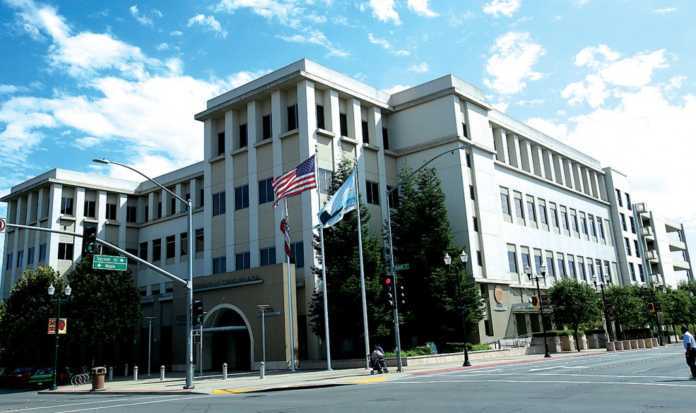WATSONVILLE—Watsonville renters that have been under increased financial pressure during the COVID-19 outbreak received some good news Monday.
The City Council by a 5-2 vote approved a temporary moratorium on evictions for tenants—both residential and commercial—affected by the fallout of the global coronavirus pandemic.
The emergency ordinance, which went into effect immediately, will protect renters that have fallen into financial or medical instability because of the disease. Those who have contracted COVID-19, have been laid off of work or are losing income because of the statewide shelter-in-place order or are forced to take care of a family member that is deemed high-risk of severe illness from the virus cannot be evicted through at least May 31.
Tenants who do have the means to pay rent, however, must continue to do so until they cannot. That includes those that have lost a portion of their usual income but can still pay a slice of their agreed-upon rent.
Delinquent renters will have up to six months after the moratorium lifts to pay their landlord what they owe.
“It’s really important for the community to understand that what the Council is considering today is not a rent forgiveness program,” said Watsonville City Manager Matt Huffaker. “It’s really important for our families and our renters to continue paying what they can. What this framework allows for is discussion between a tenant and a landlord to reach some agreement during these unprecedented times.”
Councilwomen Ari Parker and Trina Coffman-Gomez voted no because they did not want the commercial tenants to have the same protections.
Both felt the City Council was acting too quickly and should instead allow those property managers and business owners to come to an agreement on their own terms.
“Commercial is a business contractual relationship and they’re going to work it out—and we can support that,” Parker said. “But families need to be protected, homes need to be protected.”
Their comments came after more than a dozen property managers through email and phone calls urged the Council to reconsider the moratorium. All said the move would further cripple the local economy beyond the current shutdown.
“You do not have all or even some of the details of what is going to be done at the federal, state or county level,” said property manager Clark Codiga of Oaktree Property Company. “It is premature to pass any emergency ordinance like this. Why do we not wait to see what others do and then try to fill in the gaps?”
Codiga, too, said the City could open itself up to legal action for what he said was a “lack of transparency.” Monday’s meeting was a continuation of an emergency meeting called for Friday. That meeting, which caught many property managers off guard, was adjourned to Monday because of issues with the City’s teleconference system.
Despite the technical difficulties, Councilman Aurelio Gonzalez on Friday made a motion to implement the moratorium with four amendments. But that motion failed 4-3, with Council members Francisco “Paco” Estrada, Lowell Hurst, Parker and Coffman-Gomez dissenting because they could not hear much of what was said during the meeting.
Only Mayor Rebecca Garcia, City Attorney Alan J. Smith, Huffaker and a handful of city staffers attended Friday’s meeting in person. All kept arm’s length away from one another to follow the county’s social distancing requirements.
There were also four people scattered throughout the chamber’s vast seating. The public, as it was for Monday’s meeting, was encouraged to watch and participate from home.
All but two council members—Estrada and Parker—were on hand Monday. Four of them sat in the chamber’s public seating and walked to the podium usually reserved for public comment during their allotted speaking time.
A handful of members of the public waited their turn in the Civic Plaza’s fourth-floor lobby to get their say in. They were allowed into the chambers one a time and spoke into a stationary mic at the back of the room that was wiped down after every comment.
Council members were allowed to phone into the meetings thanks to an executive order from Gov. Gavin Newsom signed March 15 that temporarily supplants elements of the Brown Act, among other things.
Another executive order from Newsom signed the following day allowed local jurisdictions to halt evictions for renters and homeowners and slow foreclosures.
The Council was tasked with making decisions on the duration of the moratorium, the affected property, proof of qualifications and how long renters would have to repay landlords.
The duration of the moratorium matches what the Santa Cruz County Board of Supervisors and Santa Cruz City Council have proposed for their Tuesday meetings.
To qualify for protections, tenants would need to notify their landlord in writing, document the covered reason and pay what they can despite the emergency.
Councilman Gonzalez in his motion on Monday also broadened the language on what would qualify for proof of hardship and protected dwellings, a move he hopes will help the city’s most vulnerable residents. He also added another amendment that will protect renters from retaliation or abusive debt collection tactics.
“We have to try to keep people in shelter, that’s the key part right here,” Gonzalez said. “It’s not that we’re trying to punish our landlords, and it’s not that we’re trying to give advantages to our tenants. We’re trying to save lives.”













